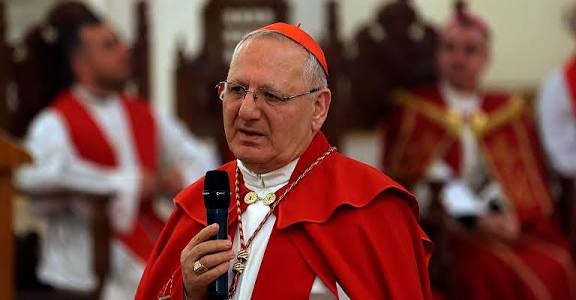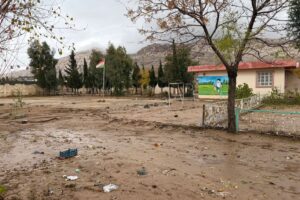
2025-09-16T08:17:35+00:00
font
Enable Reading Mode
A-
A
A+
Shafaq News – Baghdad
Chaldean Patriarch Cardinal Louis Raphael
Sako on Tuesday called for rejecting proposed amendments to the law governing
the Endowments Office for Christians, Yazidis, and Mandaeans, warning that the
changes could undermine the identity and rights of these historic religious
communities.
In a statement, Sako said the law should not
be altered by “a limited number of church leaders in the absence of the
majority and without representatives of the Yazidi and Mandaean faiths.” He
also criticized the fact that the recent meeting on the amendments was chaired
by the head of the Endowments Office, who is not a cleric, calling it a “clear
violation of tradition.”
The patriarch voiced particular concern over
a proposal to change the office’s name from the “Endowments Office for
Christians, Yazidis, and Mandaeans” to the “Office of Religious Sects,” arguing
that the more accurate title should be the “Office of the Three Religions.”
Sako also stressed that the office is linked
to the prime minister’s authority, not the president’s, noting that while a
religious community constitutes a spiritual entity, its leader is a legal
authority recognized through official appointment, which in the past was
confirmed by a presidential decree.
He warned that granting the Council of
Ministers the power to revoke recognition of any religious community by
majority vote would pose “an existential threat” to these ancient faiths.
According to Sako, another problematic clause
would allow the council to discipline or remove the legally recognized head of
a community. “The ultimate authority of a community leader is the patriarch or
the supreme religious authority,” he said, adding that existing Iraqi laws
already regulate issues such as the sale and purchase of property without
requiring further government interference.
On the appointment of the Endowments Office
head, Sako insisted that the choice should be made by the leaders of the three
religions through nomination, similar to the system followed for the Shiite and
Sunni endowment offices.
“We hope the government will not approve this
unnecessary proposal in these difficult times, in order to safeguard the rights
and distinctiveness of Iraq’s historic religions,” Sako concluded.
On Monday, Yazidi lawmaker Vian Dakhil also
criticized the draft amendment, which she said would downgrade these religions
to “sects.” She affirmed her rejection of the changes and pledged to work
against their passage.
Background on the Proposed Amendment
The proposed amendment, drafted under the
name Law on the Endowments of Religious Sects in Iraq, seeks to replace the
existing Endowments Office (Diwan) for Christians, Yazidis, and Mandaeans with
a broader “Diwan of Religious Sects.”
According to the draft, the office would be
placed under the authority of the Council of Ministers rather than remaining
tied to the prime minister’s office. It also introduces a new classification,
listing 15 sects — including Chaldeans, Assyrians, Armenians, Syriacs, Greek
Orthodox, Evangelical Protestants, Copts, and Jews — as recognized entities
enjoying legal personality.
The amendment would allow the Council of
Ministers to revoke or grant recognition to any sect by majority vote and to
appoint or remove the legal custodian (mutawalli) of a religious community. It
also transfers to the government the authority to oversee endowment affairs and
administrative responsibilities traditionally handled by community leaders.
Lawmakers who support the changes argue that
the amendment is designed to regulate the affairs of Iraq’s diverse religious
minorities and ensure equal treatment. However, critics, including Yazidi MP
Vian Dakhil, warned that the proposals risk diluting religious identities by
reducing historic religions to “sects,” and could open the door for government
overreach into internal religious affairs.





